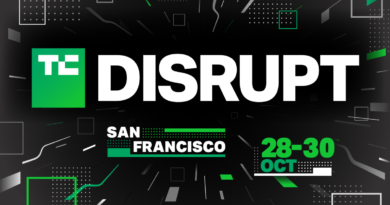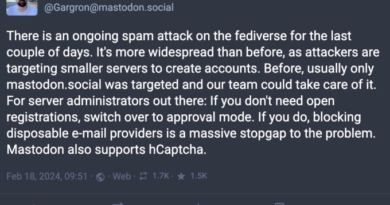Flexport gobbles up Convoy’s assets, Revel pulls the plug on mopeds and UAW sets its sights on Toyota and Tesla
The Station is a weekly newsletter dedicated to all things transportation. Sign up here — just click The Station — to receive the newsletter every weekend in your inbox. Subscribe for free.
Welcome back to The Station, your central hub for all past, present and future means of moving people and packages from Point A to Point B.
The United Autoworkers officially clinched tentative agreements with GM and Stellantis, officially ending a six-week strike that affected the Big Three U.S. automakers and sent nearly 50,000 workers to the picket lines. UAW reached a tentative deal with Ford on October 25. Days later, the UAW reached a tentative agreement with Stellantis, the automaker that owns Jeep, Ram and Chrysler. GM followed October 30.
The result for the UAW can only be described as a triumph. Workers will see record pay raises, the return of cost-of-living adjustments and the end to a tiered wage system — to name just a few of the bigger concessions that automakers made.
On top of that, UAW successfully pushed the automakers to make more investments in plants. For instance, GM’s tentative agreement includes about $13 billion in investments U.S. operations, including future EV plants.
You would be mistaken to think the UAW is now going off to revel in its victory. UAW President Shawn Fain has brought up Toyota — and the company’s decision to raise wages for its non-union workers — and Tesla several times in the past week. Once the Big Three’s bargaining agreements are ratified, expect UAW to direct its efforts towards Tesla, Toyota and all those joint venture battery factories popping up in the emerging Battery Belt.
Want to reach out with a tip, comment or complaint? Email Kirsten at kirsten.korosec@techcrunch.com
Reminder that you can drop us a note at tips@techcrunch.com. If you prefer to remain anonymous, click here to contact us, which includes SecureDrop (instructions here) and various encrypted messaging apps.
Micromobbin’
It’s the end of a short stint of electric moped sharing in the United States. — or at least in New York City and San Francisco. Revel, the company that started with around 70 shared mopeds in Brooklyn in 2018 and grew to a fleet of nearly 6,000 across multiple cities by 2021, is officially shuttering the e-moped side of the business. The company will put all its efforts into its EV ride-hail service and building out EV charging hubs.
As we’ve come to learn together, the shared micromobility business is hard. That’s especially true with a form factor like mopeds, which requires a higher price point for riders to pay. No company has truly shown — and I’m talking with balance sheets publicly available — that the juice is worth the squeeze when it comes to shared micromobility vehicles. Revel certainly found that to be the case. Ridership declined 30% YoY from summer time peaks, making the business unsustainable and pushing Revel to shut down operations.
On a personal note, I’m disappointed. Not in Revel or Lime or any of the companies that tried to make mopeds work in the U.S., but in the situation. Mopeds are a green and exhilarating way to travel in dense urban environments, and I wish Americans would get on board already!
— Rebecca Bellan
Deal of the week
Digital freight network Convoy might be a dead, but its assets will live on under supply chain logistics startup Flexport.
Flexport is not only buying Convoy’s assets; the company also plans to restore Convoy’s trucking logistics services for customers in the coming weeks, according to a memo Flexport CEO Ryan Petersen sent to staff, and shared by Freight Waves. Petersen said Flexport won’t acquire the business or any of its liabilities, but does plan to retain “a small group of team members from their core product and engineering team.”
Terms off the deal haven’t been shared publicly, but Petersen said in the memo that “the purchase price relative to value is modest.” As a reminder Convoy reached a $3.8 billion valuation in April 2022 after raising $260 million in a Series E round.
And plot twist! Convoy co-founder and CEO Dan Lewis might be one of the team members joining Flexport, according to the Wall Street Journal, which cited a person familiar with the agreement. Perhaps Lewis, who cut his teeth at Microsoft, Google and Amazon, will have better luck with Petersen than Flexport’s former, and recently ousted CEO Dave Clark.
Other deals that got my attention this week …
Ford has acquired Auto Motive Power, or AMP, to bolster its charging, battery management and power conversion tech. Financial terms were not disclosed. The secretive energy startup’s tech, talent and in Santa Fe Springs, California will now be folded into Ford.
SkyCell, a Swiss startup, raised $57 million at a $600 million valuation to build smart containers for pharmaceutical transport. Catalyst, a division of M&G Investments, led the round and is the only investor being disclosed. The company has previously raised around $133 million, including rounds of $62 million and $35 million; backers have included insurance companies, financiers from the Middle East and specialist healthcare investors.
Treads, the Park City, Utah-based startup that developed an AI-powered car maintenance subscription, raised $4.6 million to expand into 16 new cities by the end of 2023. The seed round was led by Mucker Capital, with participation from Kickstart Seed Fund, Peak Venture, Royal Street Ventures and Convoi Ventures.
Windrose Technology, a Chinese electric truck maker, has reportedly started talks with banks as it eyes an initial public offering in the United States in 2024.
Notable reads and other tidbits
ADAS
Tesla was handed another win after a jury sided with the automaker over allegations that its Autopilot advanced driver assistance system led to a death. The case was filed by two passengers who survived a 2019 crash and alleged that Tesla knew its product was defective. Tesla argued that the crash, which resulted in the death of the driver Micah Lee, was the result of human error — the same stance it’s taken in other Autopilot lawsuits.
Autonomous vehicles
Cruise co-founder and CEO Kyle Vogt took to Hacker News to clarify some information about the company’s remote guidance practices, following an article in the New York Times. I’ll leave the whole comment here.
Cruise CEO here. Some relevant context follows.
Cruise AVs are being remotely assisted (RA) 2-4% of the time on average, in complex urban environments. This is low enough already that there isn’t a huge cost benefit to optimizing much further, especially given how useful it is to have humans review things in certain situations.
The stat quoted by nyt is how frequently the AVs initiate an RA session. Of those, many are resolved by the AV itself before the human even looks at things, since we often have the AV initiate proactively and before it is certain it will need help. Many sessions are quick confirmation requests (it is ok to proceed?) that are resolved in seconds. There are some that take longer and involve guiding the AV through tricky situations. Again, in aggregate this is 2-4% of time in driverless mode.
In terms of staffing, we are intentionally over staffed given our small fleet size in order to handle localized bursts of RA demand. With a larger fleet we expect to handle bursts with a smaller ratio of RA operators to AVs. Lastly, I believe the staffing numbers quoted by nyt include several other functions involved in operating fleets of AVs beyond remote assistance (people who clean, charge, maintain, etc.) which are also something that improve significantly with scale and over time.
JiYue, Baidu’s JV robocar brand, launched its flagship vehicle and first AI powered electric robocar, the JiYUE 01, at a brand event in Shanghai. It’s a consumer model powered by Baidu Apollo’s full suite of L4 autonomous driving solutions. The car also includes “SIMO,” Baidu’s intelligent AI vehicle concierge for voice commands and support.
Mayor Karen Bass says Los Angeles — not a state agency — should have the power to decide how robotaxi companies expand in the city. The mayor sent an open letter to the Public Utilities Commission, which regulates commercial robotaxi operations in California, arguing that Los Angeles should hold that ultimate authority.
Electric vehicles, charging & batteries
Arrival set out eight years ago to make electric vehicle production “radically more efficient.” TechCrunch reporter Harri Weber looks at the last 15 months of promises and pivots that has sent the once $13 billion valuation company to a market cap of $20 million.
GM will deliver the Chevy Equinox EV, an all-electric compact SUV aimed squarely at the mass market, to dealerships in 2024 with a battery range and sticker price that could propel its EV sales and even compete with Tesla.
Nio, the Chinese carmaker known for its sleek, premium electric SUVs, is expected to cut “around 10%” of its job positions after weeks of discussions over the firm’s two-year operational plans, according to an internal letter viewed by TechCrunch.
Subaru will adopt Tesla’s so-called North American Charging Standard and will incorporate the charging port in its vehicles starting in 2025.
Toyota will invest another $8 billion into its first EV battery factory in North America. Total investment in the North Carolina-based factory, which is slated to go into production in 2025, is now $13.9 billion — quite the jump from Toyota’s initial plans to make a $1.29 billion investment in a facility that will make batteries for hybrid electric vehicles and battery electric vehicles.
In-car tech and software
Ford shut down VIIZR, a software-as-a-service company that along with Salesforce built an app to help tradespeople like plumbers, locksmiths and electricians to schedule field appointments, send invoices and manage customers. About 40 people who worked at VIIZR were laid off. (I went into the archives to share some of Salesforce co-CEO Marc Benioff and Ford CEO Jim Farley’s comments to me during a Ford Pro event in January 2022)
Volkswagen’s software unit Cariad will delay the launch of its new software architecture yet again and is laying off about 2,000 workers. These delays are prompting Porsche to turn to Google instead. The brand said future models would have Google built-in, which relies on the Android Automotive operating system to integrate Google services like Maps, Assistant and other apps directly into the vehicle.
Ride-hailing
Uber and Lyft agreed to pay drivers in New York a combined $328 million to settle wage-theft complaints. The settlement is a win for drivers, — and not only because it provides backpay for allegedly stolen wages. The outcome also helps drivers secure a statewide right to minimum wage and provides paid sick benefits.







